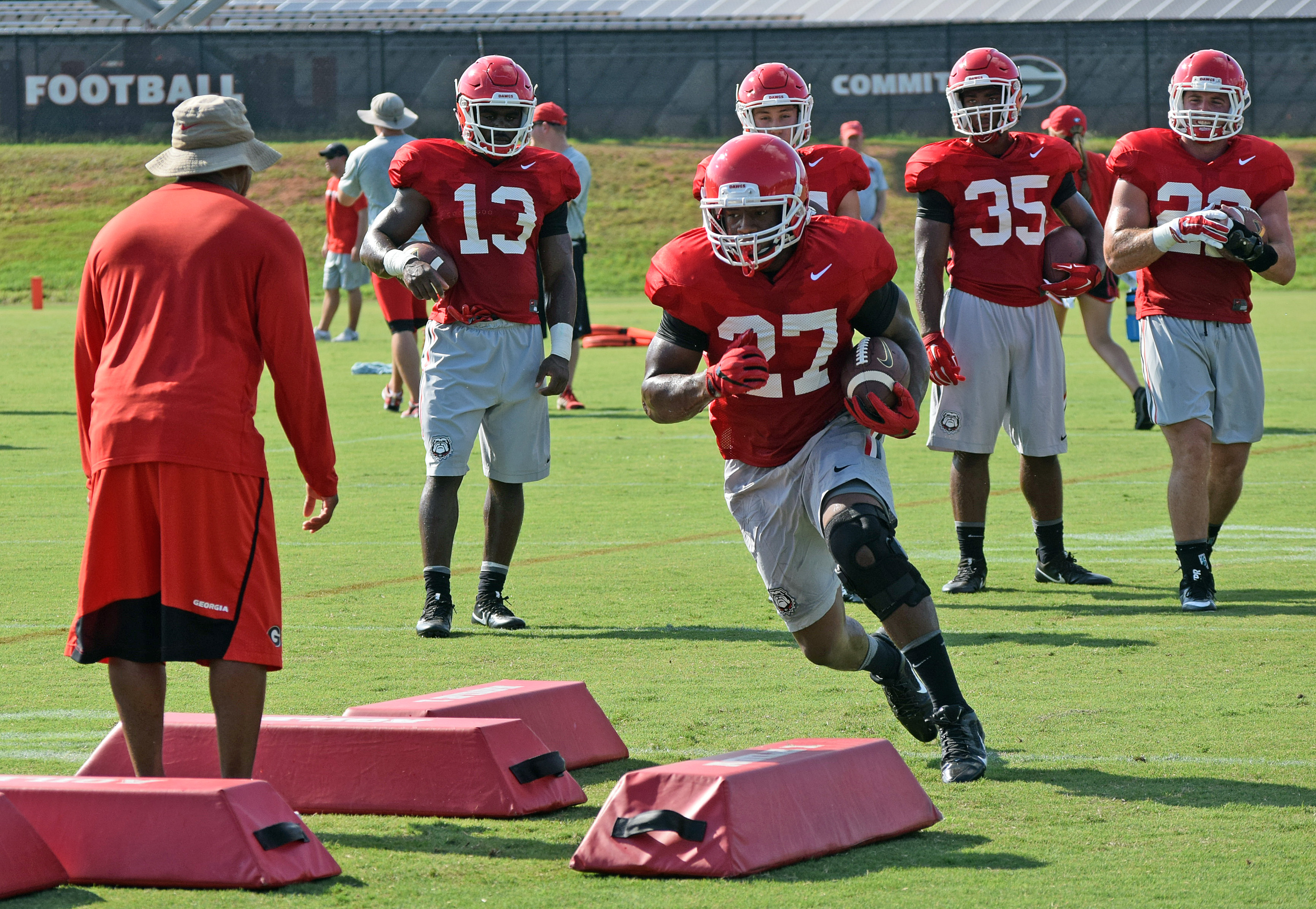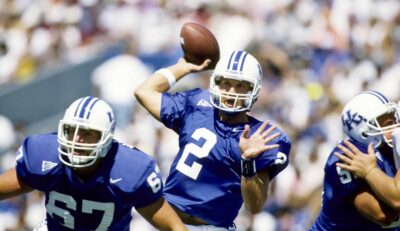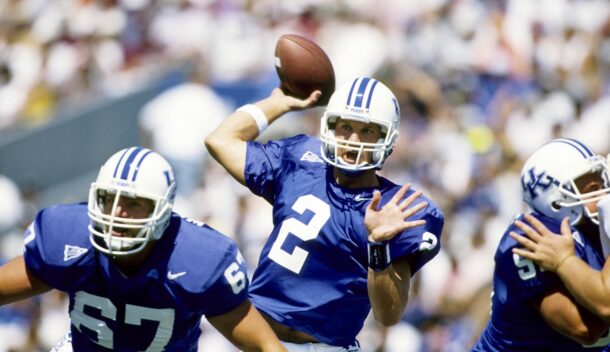
A new level of offensive creativity will be needed for Georgia’s loaded backfield
The game of football can often serve as a metaphor for the way we can approach life. Teamwork, perseverance and hard work can lead to success in personal matters as much as they can on the field.
In Georgia’s case, there is one life maxim that it should follow when approaching its offensive game plan for 2017: Play to your strengths.
The Bulldogs have one of the deepest stable of running backs in college football. Nick Chubb and Sony Michel are exceptional veterans who provide a one-two punch unlike any other. Behind them are sophomores Brian Herrien and Elijah Holyfield as well as incoming freshman D’Andre Swift.
Each running back can be another tool for Georgia’s offense, but only if the coaching staff can employ them effectively.
Traditionally, the Bulldogs’ pro-style approach has meant using a single running back led by a fullback. With so many true running backs at their disposal, however, Kirby Smart and Jim Chaney might want to start thinking about getting those players on the field at the same time.
This will require a new level of creativity from the staff, but ESPN college football analyst Tom Luginbill sees the potential for Georgia to develop a potent attack.
“Let’s just say you’ve got ‘12’ personnel with Isaac Nauta at tight end, but now you’ve got Nick Chubb and Sony Michel on the field at the same time,” Luginbill explained to Saturday Down South. “Let’s say it’s 3rd-and-4 and Georgia lines up in split backs out of the shotgun, and they motion Sony Michel out of the backfield.
“If you look at it from that perspective, now what you’re doing is you’re creating what could potentially be a mismatch in the passing game with a back on a linebacker or a safety, which is an advantage for Georgia. Yet, you still have your guy who can push the pile and get you 4 yards in the run game, and your tight ends on the field who can help in the run game or be involved in the passing game.”

In the modern version of football, schemes are evolving to become increasingly matchup oriented. The Bulldogs have the players to create mismatches.
It’s not uncommon for SEC teams to have a pair of talented running backs. But if this were a game of chess, Georgia’s side of the board would have three extra knights in place of pawns.
This is something that Smart and his staff are aware of, and they are taking it into consideration when evaluating the offense this spring.
“Is Charlie Woerner better than your fourth receiver,” Smart rhetorically asked when discussing offensive options this spring. “Is Sony or Brian Herrien better than your third receiver? So, there’s a lot of things we’re doing out there and we’re trying to get the best football players on the field.”
Smart’s answer came in response to a question about the depth and talent at wide receiver, which is a concern this spring. Because of the unproven nature of that position, it should be even more important that the staff understands their options coming out of the backfield.
Georgia is right in wondering if Michel or Herrien are better than its third receiver. At this point, that very well could be the case. With Isaiah McKenzie off to the NFL, his role could very well be filled by a running back. The play below should be equally effective with any back occupying McKenzie’s spot.
Chaney and Smart saw Nicholls' reaction on the fake reverse earlier, so they went back to it and gave McKenzie the ball. #UGAFilmReview pic.twitter.com/MYdPUMGrjY
— Will McFadden (@willmcfadden) March 31, 2017
But a player’s talent shouldn’t be the sole factor in that decision. Employing versatile players in creative ways makes defenses work harder before the ball is snapped. Suddenly, there are many more possibilities that the defense must plan for and the players on the field must try to diagnose.
After the 2016 season, Bulldogs fans might not trust Chaney to make the right decision; a common complaint was that he failed to play to the offense’s strengths in key situations. Last year might not be the right best indicator of what the staff is capable of, however, due to the youth and lack of talent in key spots.
“It’s not just about the running backs, it’s about the quarterback, too,” Luginbill said. “It’s tough to do anything when you’re playing with a young quarterback, especially when you’re not very good in the offensive line, which they weren’t. …
“There is no way a year ago they felt comfortable (checking plays at the line) with Jacob Eason, he could not have handled that. And most freshmen can’t, that’s a very rare thing. A lot of the ability to do this isn’t just coming from the sideline and calling it; it’s being able to trust that if you’re on the field and you say, ‘Here’s our personnel grouping, here’s our formation, here’s our shift and this is the play we want to get into after we’ve done all of that’ the quarterback is going to be an integral part in getting you into that right play.’”
Although Georgia’s offense looked conservative last season, it might have been more out of necessity than identity.
The line might still be an issue, as there will be several new faces up front in 2017, but Eason’s experience should help open up the playbook. If Eason proves capable of getting the Bulldogs into the correct play, they have the players to attack the width of the field and pound it up the middle.
There are still some question marks at important positions, but if Smart and his staff focus on using the team’s offensive strengths, the Bulldogs could be a lot of fun to watch between the hedges.







